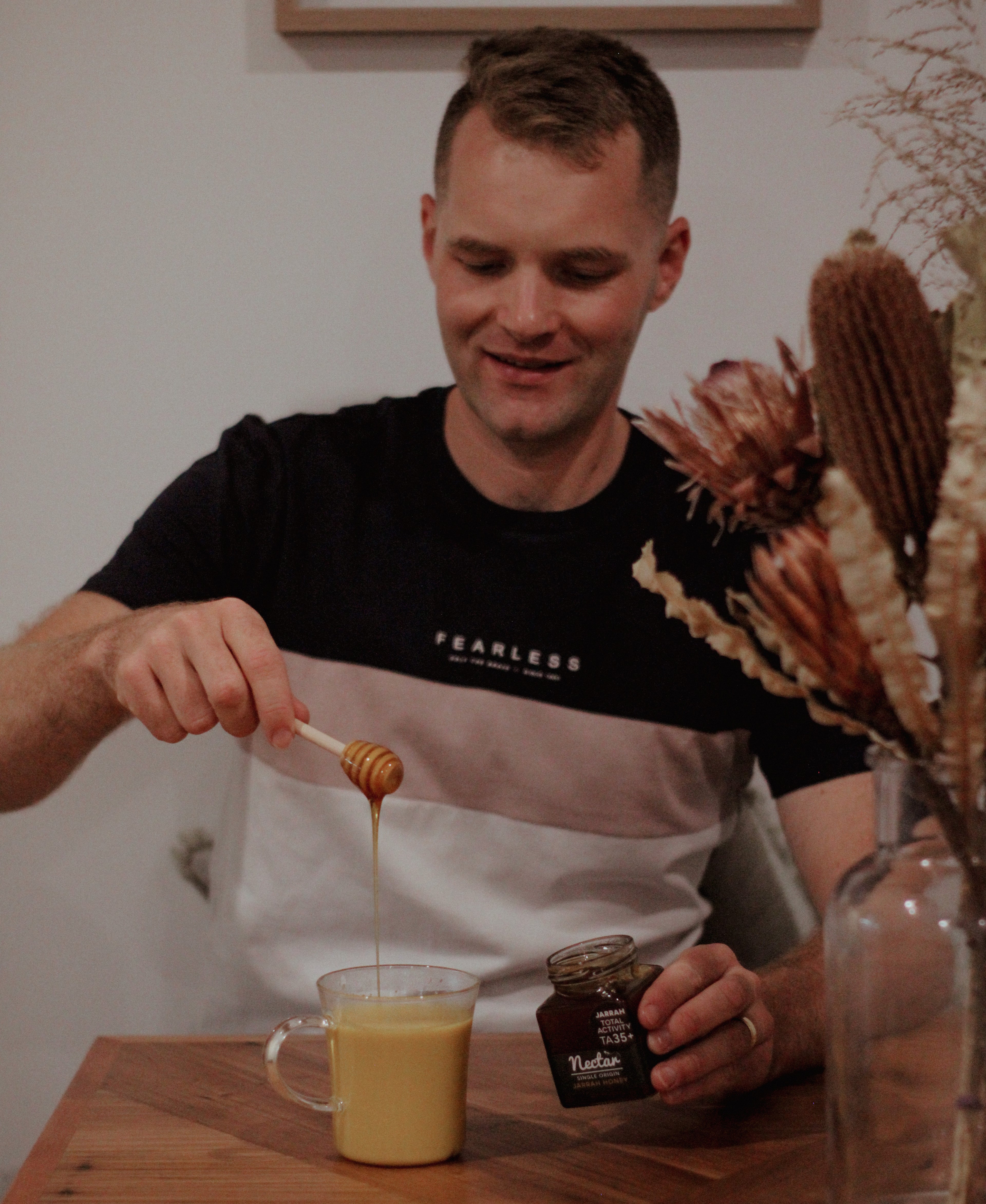Most of us know how a daily spoonful of honey can do great things for our health, and tastes pretty nice too! But did you know Western Australian honey, particularly Jarrah, Marri, Blackbutt and various native WA varieties of honey are not only known for their unique flavours but also for their high levels of bioavailable antioxidants, which can play a significant role in promoting overall well-being.
Antioxidants in Jarrah Honey
Both Jarrah and all of our Eucalypt varieties of honey are produced by bees that forage on the nectar of native trees found in the pristine forests of Western Australia. These honeys have gained recognition for their remarkable antioxidant properties, but Jarrah is one of the highest.
Antioxidants are compounds that help protect our cells from oxidative stress, which is caused by free radicals. Oxidative stress has been linked to various chronic diseases, including cancer, heart disease, and neurodegenerative disorders. What sets Jarrah honey apart is its rich content of unique antioxidant phenolic compounds.
How Antioxidants Are Absorbed into the Body
To fully appreciate the health benefits of antioxidants in Western Australian honeys, it's crucial to understand how these bioactive compounds are absorbed into the body. Unlike some other sources of antioxidants, honey provides a readily available and easily absorbed form of these valuable molecules.

When you consume honey, whether by adding it to your tea or maybe a golden latte. Drizzling it over yogurt, or enjoying it on toast, your digestive system efficiently absorbs the antioxidants and other bioactive compounds. These compounds are then transported through the bloodstream to reach every cell in your body, where they can neutralize harmful free radicals and protect your cells from damage.
Benefits of Antioxidants in Preventing Oxidative Stress
Antioxidants are like the body's defense system against oxidative stress. Free radicals are unstable molecules that can damage our cells and DNA, leading to inflammation and the development of chronic diseases. By consuming antioxidant-rich foods like native WA honey, you're providing your body with the tools it needs to combat these harmful effects.
The benefits of antioxidants in Western Australian honeys include:
-
Cellular Protection: Antioxidants help protect your cells from oxidative damage, which can slow down the aging process and reduce the risk of chronic diseases.
-
Boosting Immunity: Antioxidants support a healthy immune system by preventing cell damage and inflammation, allowing your body to better defend against infections.
-
Heart Health: Antioxidants in honey can improve heart health by reducing oxidative stress and inflammation in the cardiovascular system.
-
Cancer Prevention: While no single food can prevent cancer, a diet rich in antioxidants may help reduce the risk by combating DNA damage caused by free radicals.
-
Brain Health: Antioxidants are believed to support brain health and may play a role in reducing the risk of neurodegenerative diseases like Alzheimer's and Parkinson's.
Incorporating these antioxidant-rich honeys into your diet, you can provide your body with the protection it needs against oxidative stress, inflammation, and the associated health risks. So, the next time you reach for a sweet treat, consider indulging in the natural goodness of Western Australian honey and enjoy the sweet taste of health and well-being.
References;
Ahmed S et. al. 2018 Honey as a Potential Natural Antioxidant Medicine: An Insight into Its Molecular Mechanisms of Action
https://www.hindawi.com/journals/omcl/2018/8367846/
DD Schramm et.al. 2003 Honey with high levels of antioxidants can provide protection to healthy human subjects
https://pubmed.ncbi.nlm.nih.gov/12617614/
Alam Zeb 2020Concept, mechanism, and applications of phenolic antioxidants in foods
https://pubmed.ncbi.nlm.nih.gov/32691460/
Lawag. I et.al. Antioxidant Activity and Phenolic Compound Identification and Quantification in Western Australian Honeys

